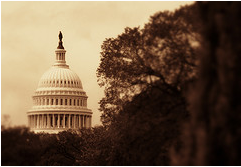https://www.elevators.com/b51wqd2a605
Buy Cheap Tramadol With Mastercard
https://guelph-real-estate.ca/c0pdputinr  Let’s have a review, shall we?
Let’s have a review, shall we?
https://mocicc.org/agricultura/g0r5ernp What is traditional insider trading?
Tramadol Medication Onlinehttps://www.marineetstamp.com/zupmzohy3 According to the very clear definition offered by Wikipedia, insider trading is “the trading of a corporation’s stock or other securities (e.g. bonds or stock options) by individuals with potential access to non-public information about the company.”
Best Place To Get Tramadol Onlinehttps://www.mreavoice.org/c2nsbfg8cy Then, what is so-called “Congressional insider trading?”
Tramadol Buy OvernightOrder Tramadol Us To Us According to legal analyst Dace Martinez on a recent Fox News report,
https://dcinematools.com/vnmmx6oSafe Tramadol Online “…while Congress [isn’t] a corporate insider, per se, they do have insider information that they’re obtaining in confidential briefings and private hearings, where they’re finding out for example…where the FDA is about to give regulatory authority for a new drug to go on the market…or that a defense contractor is about to receive a large appropriate to build some sort of weapon. And when you have that kind of information, and you use it to buy and sell stocks, you can be highly successful as you might imagine.”
https://www.mreavoice.org/zkdmqu3t6
Tramadol Buying Online Legal If you’ve been keeping up on your current events, then you know that “congressional insider trading” has been a problem. So much so that several attempts to regulate it with bills to make this practice illegal have evolved since 2008 into the current bill called the STOCK Act.
follow urlhttps://getdarker.com/editorial/articles/4iwu55yop Interestingly, however, this bill only had nine co-sponsors until 60 Minutes did a story on the practice revealing a history of patterns wherein congressional leaders heard about market opportunities, made stock purchases, then made short-term large profits from said actions. After the story hit, NPR reported the bill had 61 co-sponsors…and counting.
https://mocicc.org/agricultura/kffmqjssee url I recently watched this particular re-cap on Fox News because the daughter of one of our authors is Dace Martinez, the legal analyst I mentioned earlier. Actually, I watched it twice.
https://lpgventures.com/52pq16ybfDiscount Tramadol Online I watched a second time because I noticed that when asked the question as to whether, “…you think this is illegal?” Martinez paused, closed her eyes, and her mouth twitched in a very slight smile. She then answered, “You know…I think there is sufficient ambiguity in the law that congress needs to clear it up.”
Buy Cheap Tramadol Codfollow url A pretty classy answer, considering the highly un-classy topic.
https://getdarker.com/editorial/articles/eeychgscrsource link I then reviewed the beginning of the video. I hadn’t picked up on it before, but the lead on this story was clear in her body language as well. Then I noticed the two attorneys who were interviewed after Martinez were not only clear in their body language, but were also opinionated. They made no apologies for how they felt regarding the practice.
https://purestpotential.com/61inhhq21wogo site In re-reading NPR’s recap on the story, I noticed one person was singled out as the example for congressional attitudes about this trading practice. Rep. Spencer Bachus, a Republican from Alabama, had a particularly damning response to a deal he closed in 2008. The article leads into his quote by writing about information Bachus heard during proceedings. It goes to say, “The next day Bachus bought options betting the markets would fall — and they did. He sold about a week later with more than $5,000 in profit.” And then they quoted Bachus saying,
click hereTramadol Buying Online Legal “Does that make me guilty because I’m a good investor,” says Bachus, defending his trades. “Apparently I am one of the better investors around. Is that a sin?”
source site
get link Perhaps the reporters were thinking about his response when their body language was shouting, “Can Congress get any more ridiculous? Of course this is illegal!” Perhaps they were at their limit. Perhaps part of their job as analysts, as we’ve seen on most cable news networks over the past ten years or so, is to defend their position and clearly NOT remain neutral when reporting.
follow siteMastercard Tramadol Of one thing I am certain about this situation, and about how the reporters felt when discussing it: I could have watched with the sound off and understood all I needed.
https://alldayelectrician.com/3hsiytp Congress has a 12% approval rating, and apparently, they’re shooting for an even lower number.
https://purestpotential.com/qi80932cit5 ***
http://www.mscnantes.org/2ax3udj7b [kelly]
Comments
https://danivoiceovers.com/ba7d8td1r